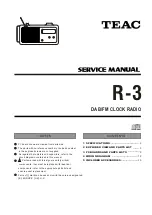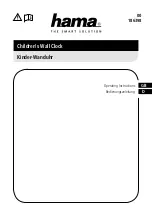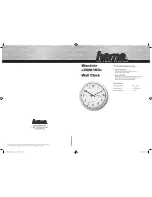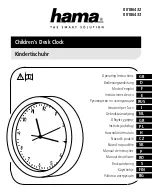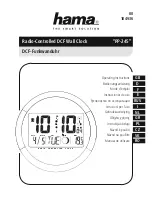
4 Time Strings
4.1 Format of the Meinberg Standard Time String
The Meinberg Standard Time String is a sequence of 32 ASCII characters starting with the STX (start-of-text)
character and ending with the ETX (end-of-text) character. The format is:
<STX>D:
dd.mm.yy;T:w;U:hh.mm.ss;uvxy
<ETX>
The letters printed in italics are replaced by ASCII numbers whereas the other
characters are part of the time string. The groups of characters as defined below:
<STX>
Start-Of-Text, ASCII Code 02h
sending with one bit accuracy at change of second
dd.mm.yy
the current date:
dd
day of month
(01..31)
mm
month
(01..12)
yy
year of
the century (00..99)
w
the day of
the week
(1..7, 1 = Monday)
hh.mm.ss
the current time:
hh
hours
(00..23)
mm
minutes
(00..59)
ss
seconds
(00..59, or 60 while leap second)
uv
clock status characters (depending on clock type):
u:
‘#’
GPS: clock is running free (without exact synchr.)
PZF: time frame not synchronized
DCF77: clock has not synchronized after reset
‘ ‘
(space, 20h)
GPS: clock is synchronous (base accuracy is reached)
PZF: time frame is synchronized
DCF77: clock has synchronized after reset
v:
‘*’
GPS: receiver has not checked its position
PZF/DCF77: clock currently runs on XTAL
‘ ‘
(space, 20h)
GPS: receiver has determined its position
PZF/DCF77: clock is syncronized with transmitter
x
time zone indicator:
‘U’
UTC
Universal Time Coordinated, formerly GMT
‘ ‘
CET
European Standard Time, daylight saving disabled
‘S’
(CEST) European Summertime, daylight saving enabled
y
anouncement of discontinuity of time, enabled during last hour before discontinuity comes in effect:
‘!’
announcement of start or end of daylight saving time
‘A’
announcement of leap second insertion
‘ ‘
(space, 20h) nothing announced
<ETX>
End-Of-Text, ASCII Code 03h
14
Date: 24th July 2018
DCF600HS






















